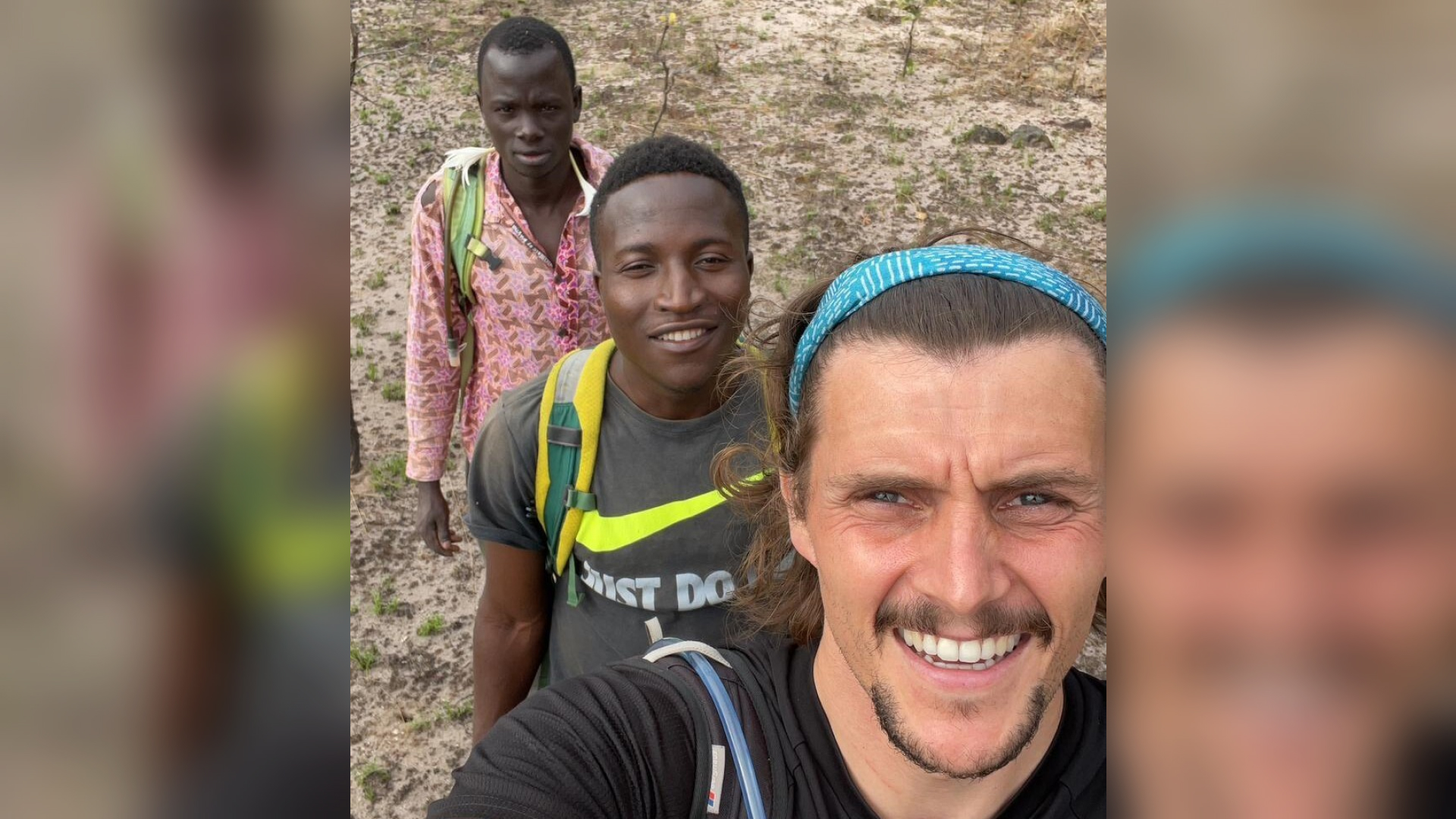Alpha chimp steals eagle's dinner in 'surreal and exhilarating' forest encounter
Chimps usually hunt for their meat, but a rare confrontation between a chimp and an eagle in Tanzania showcased their ability to scavenge.

An eagle in the Issa Valley of western Tanzania was just about to tuck into a hard-earned meal when an alpha male chimpanzee burst onto the scene and stole its prey — a rare encounter that has been documented by scientists in a new study.
Chimpanzees (Pan troglodytes) are mostly vegetarian, but their diets include some meat and other animal products. They actively hunt for their meat and, on rare occasions, scavenge from dead carcasses.
The new study, published Oct. 31 in the journal Primates, highlights chimps' ability to confront other predators and take their food in a behavior called confrontational scavenging.
Lead author Sam Baker, research coordinator of the Bugoma Primate Conservation Project in Uganda, was following the chimps with Kidosi Raulent Mfaume, a local field assistant, when they saw Imba, an alpha male chimp, run into a patch of long grass. A crowned eagle (Stephanoaetus coronatus) then immediately took flight. Moments later, Imba appeared with a motionless young bushbuck (Tragelaphus scriptus) that the study authors assume the eagle had just caught.

"Like most new, particularly rare experiences, it was surreal and exhilarating in the moment," Baker told Live Science in a message on social media. "These confrontations are rare in the literature, most of which are inferred, so an almost complete observation of events is unique."
Other chimps tried to steal the carcass and begged Imba to share for around an hour. He gave some to a female chimp and consumed most of the bushbuck himself. After discarding the carcass, other chimps then went and helped themselves to the remains. Eventually, only the skull was left.
Related: Chimps use military tactic only ever seen in humans before
Sign up for the Live Science daily newsletter now
Get the world’s most fascinating discoveries delivered straight to your inbox.
The encounter is only the second documented example of a chimpanzee stealing food from a raptor. Most accounts of confrontational scavenging involve chimps taking prey from baboons. A 2019 study published in the Journal of Human Evolution found that chimps also steal from leopards (Panthera pardus), even though leopards naturally predate on chimps.
Because chimps are one of our closest living relatives, they offer us a window into the lives of our last common ancestor, which lived around 6 to 8 million years ago, and the evolution of human behavior, Baker said.
Scavenging could have led to increasingly complex social behavior in early humans "like evolutionary stepping stones, passive to confrontational scavenging, to cooperative hunting," he said.
Mfaume, the field assistant who also witnessed the events, but who was not named in the study, died due to ill health in 2022 at the age of 29.
Baker said he wished to dedicate the study to Mfaume’s memory. "He was a beautiful, indelible soul passionate about the forest and the chimpanzees there," Baker added.

Patrick Pester is the trending news writer at Live Science. His work has appeared on other science websites, such as BBC Science Focus and Scientific American. Patrick retrained as a journalist after spending his early career working in zoos and wildlife conservation. He was awarded the Master's Excellence Scholarship to study at Cardiff University where he completed a master's degree in international journalism. He also has a second master's degree in biodiversity, evolution and conservation in action from Middlesex University London. When he isn't writing news, Patrick investigates the sale of human remains.










